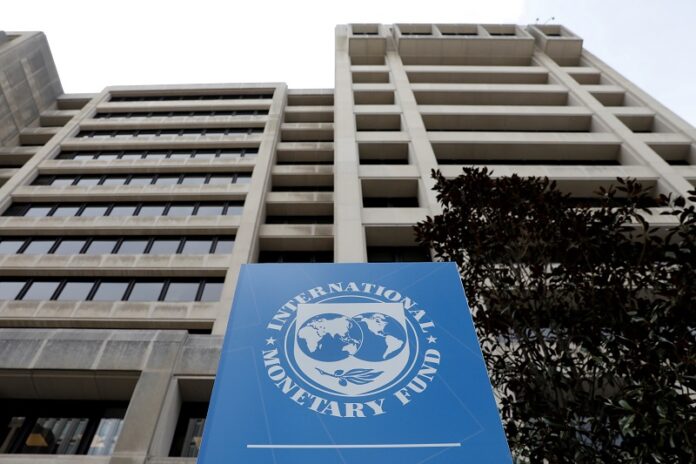WASHINGTON: The International Monetary Fund (IMF) called on governments worldwide Monday to join forces and roll out aggressive financial supports for the coronavirus-infected global economy, including steps to help workers and businesses directly.
But while several countries have taken steps to cushion the blow to their economies and boost confidence, including the United States, there has been little visible coordination among policymakers like there was at the height of the 2008 global financial crisis.
The rising concern about the global economy has been reflected in the continued collapse of global stock markets, with trillions in value wiped out in recent weeks.
Given the “acute shocks” caused to economies, consumers and businesses, IMF chief economist Gita Gopinath said “policymakers will need to implement substantial targeted fiscal, monetary and financial market measures to help affected households and businesses.”
That includes “cash transfers, wage subsidies and tax relief” as well as interest rate cuts and financial market support by central banks.
Given the ties between economies globally, “the argument for a coordinated, international response is clear,” she said in a blog post.
The IMF already warned that the impact of the COVID-19 outbreak will slow growth in the world economy to below the 2.9pc posted last year.
IMF chief Kristalina Georgieva said last week the epidemic “is no longer a regional issue, it is a global problem calling for global response.”
The virus has shuttered factories, disrupted travel, delayed conferences and sporting events and infected more than 110,000 people worldwide. More than 3,800 people have died, mainly in China, and deaths are accelerating in other countries.
Gopinath said the impact is seen in production cuts hitting companies across the globe that depend on parts from China, as well as consumption, since people are reluctant to go out and spend money.
INT’L COORDINATION
Some countries already have taken steps, Gopinath noted. Italy, the country hardest hit in Europe, “has extended tax deadlines,” and Korea has introduced wage subsidies.
Italy has locked down its economic heartland in the north as the death toll reached 366, and the country is preparing a 7.5 billion euro ($8.6 billion) package aimed at helping out the devastated tourism industry and other sectors especially hard-hit by disruptions in global supply chains.
The US Federal Reserve last week announced an emergency interest rate cut, and on Monday significantly increased its daily cash injections into money markets to $150 billion to ensure ample liquidity amid the virus uncertainty.
That was just what Gopinath called for, saying such moves “can lift confidence and support financial markets.” And she noted that “actions by large central banks (are) also generating favorable spillovers for vulnerable countries.”
But government spending measures to support economic activity have been lacking. Germany announced an investment package worth 3 billion euros a year but it does not kick in until 2021 and is spread over three years.
US President Donald Trump signed a bill with $8 billion in emergency funding, but that largely goes to medical equipment, medication and testing supplies for state and local governments.
According to media reports, White House advisers are preparing a menu of options for Trump that include paid sick leave and emergency help for small businesses.
The Group of 20 world economies led the charge during the global financial crisis.
But in meetings in recent weeks, neither the G20 nor the G7 has offered any specifics on how they will respond.
French President Emmanuel Macron on Monday called for European Union leaders to hold a videoconference Tuesday aimed at coordinating their response to the coronavirus outbreak on the continent.




